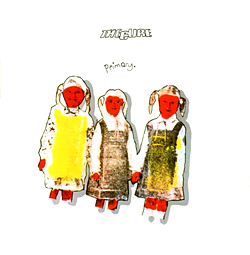Release
"Primary" was the first song by The Cure to be remixed as a separate extended mix for release on 12" single (and not co-released on other formats, in the way the 12" version of "A Forest" was also the album version appearing on Seventeen Seconds , for example). In fact, the original 12" extended mix is, to this day, still only available on the original 12" single, which has never been reproduced on any other album, making it quite a rare item. The main difference between the 7" mix (also the album mix) and the 12" mix is that the extended mix lengthens the instrumental introductions to the song's verses.
This page is based on this
Wikipedia article Text is available under the
CC BY-SA 4.0 license; additional terms may apply.
Images, videos and audio are available under their respective licenses.
